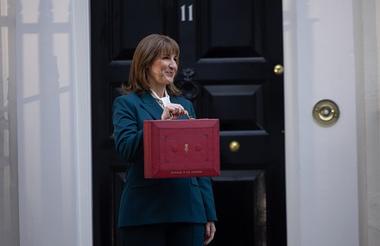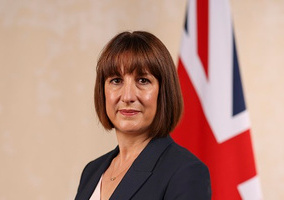Charity sector bodies have criticised chancellor Rachel Reeves’ budget for offering little in the way of support for voluntary organisations.
Details of a previously announced VAT relief on business donations of goods to charities due to come in next year were celebrated by the sector, which had lobbied for the change to incentivise charitable gifts from private firms.
Measures to clamp down on inheritance tax avoidance were more cautiously welcomed, with the Charity Tax Group (CTG) seeking to ensure there are “no unintended consequences” for legacy income.
Plans to stop charities claiming unintended tax reliefs through “tainted” donations, approved investments and non-charitable expenditure were also confirmed in the budget as was the well-received recent announcement of an Office for the Impact Economy.
Sector bodies had also outlined the impact that another rise in minimum wage rates, confirmed by the government before the budget, would have on charity employers if not matched by increased funding.
But overall, sector bodies criticised the budget’s lack of acknowledgement of voluntary organisations and failure to offer any significant support to the sector at a challenging time.
‘Overlooked and underrecognised’
Charity Finance Group (CFG) co-chief executive Sarah Lomax described the budget as a “mixed bag” with “little to ease the concerns around the financial sustainability of the sector”.
Her organisation has asked charity employers to share their views on the impact a £2,000 cap on pension contributions through salary sacrifice schemes, revealed before the budget, could have on them.
She welcomed the lifting of the two-child benefit cap but said there was “little to celebrate” within Reeves’ speech otherwise and suggested that a frozen threshold for the basic rate of income tax could increase demand for charity services.
“In October, CFG, as part of the Civil Society Group, set out our asks of government. We called for the government to support the voluntary sector to continue delivering vital services at a time when many charitable organisations are struggling with multiple challenges. Today’s budget saw little to aid charities with these struggles.
“Charities play an essential role in contributing to the government’s missions, and we hope that the government will be showing its commitment to the Civil Society Covenant through actions, as well as words.”
NCVO executive Leigh Brimicombe praised the government’s scrapping of the two-child benefit cap but said he was disappointed that charities “barely feature” in the 152-page budget document.
“The sector adds billions in gross value to the economy and is essential to local growth, neighbourhood health and community connection, yet remains overlooked and underrecognised,” he said.
“If charities are to continue supporting people and driving productivity, they need the right foundations: investment in digital capability, funding that enables innovation, commissioning that meets real delivery costs, and a policy framework that makes public giving easier.
“We want to work with Treasury to ensure future budgets reflect the value charities bring and address the pressures they face. Partnership with the sector is essential if government wants to create long-term, sustainable solutions for communities.”
Business donations VAT relief welcomed
CTG chair Richard Bray celebrated the confirmation of VAT relief on business donations, which he hoped would “bring benefits to those in most need of help”.
“Inevitably there are rules which will add some complexity and limit some of the impact, but we are nonetheless delighted to see this move forward and have been very happy to consult with the Treasury on this over the last few months,” he added.
CFG co-CEO Clare Mills also welcomed the VAT relief policy and the government’s confirmation of plans for a higher value limit (£200 instead of £100) on certain goods such as technology and household appliances.
“We will continue to work with HM Treasury to support the introduction of this scheme and make the case that administration needs to be kept to a minimum to encourage donations and to support charities to accept donations that would be of use to them and their beneficiaries,” she said.
“The cap has been discussed at length and we are pleased that a higher level cap has been put in place for items including white goods, furniture, carpets and digital equipment.
“It’s worth remembering that the wholesale price of goods can be significantly lower than the retail price, and the cap reflects this.”
Bray also expressed interest in the Treasury’s plan to consult on reforming VAT rules to incentivise the development of land intended for social housing.
“We will also seek to ensure that there are no unintended consequences from the changes to the inheritance tax rules when legacy income is such a vital source of income for the sector,” he added.
Ed Saltmarsh, technical manager of accountancy body ICAEW said: “The change being introduced strikes a sensible balance between simplicity and countering fraud.”












